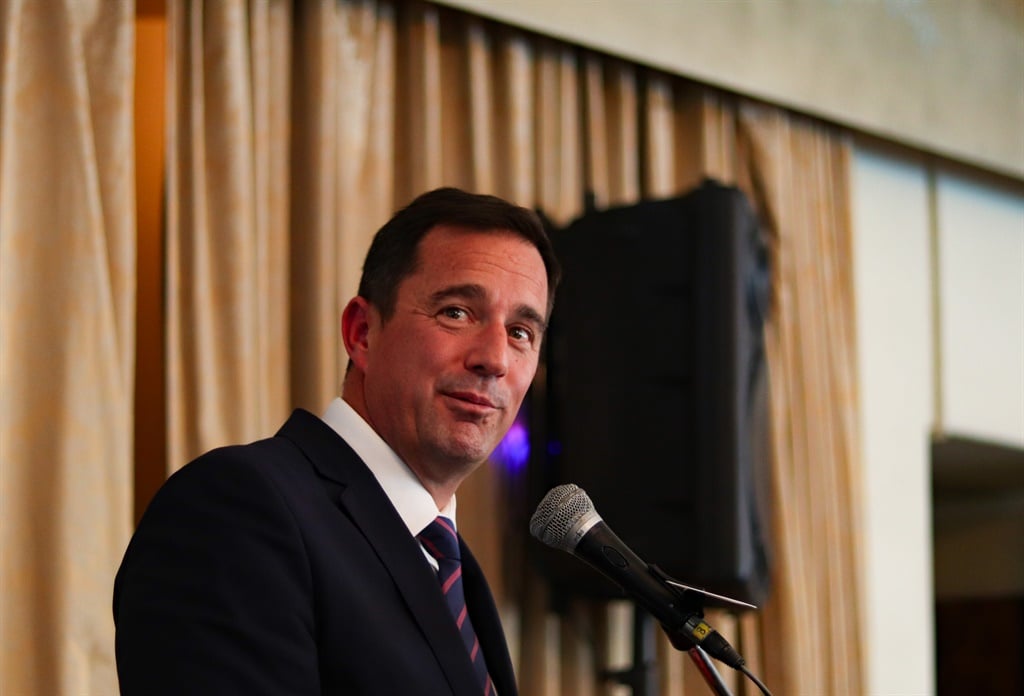


DA interim leader John Steenhuisen.
- Public schools will close from 27 July until 24 August, President Cyril Ramaphosa announced – but not everyone is pleased.
- The DA said it intended approaching the courts to keep schools open.
- The party claimed the closure would have detrimental effects on pupils, even causing possible dropouts.
The DA says it is heading to court to argue that the decision to close public schools for four weeks is “politically rather than scientifically motivated”.
The party said the decision made by Cabinet following Basic Education Minister Angie Motshekga’s consultations with the sector; including MECs, heads of department, union representatives, school governing body associations and experts, was not in the interest of schoolchildren.
On Thursday night, President Cyril Ramaphosa announced that public schools would “take a break” from 27 July until 24 August, but with exceptions.
Grade 12 pupils would remain at home for one week and return on 3 August, and those in Grade 7 would return on 10 August.
The president also announced that the academic year would be extended beyond 2020.
READ | Matric exams may have already been ‘compromised’, says researcher as schools close again
But DA interim leader, John Steenhuisen said the decision was “irrational” when looking at evidence that pupils were safe and not exposing pupils and teachers at high risk of contracting the virus.
“The ANC government has refused to open the MAC’s (Ministerial Advisory Committee) advisories to public scrutiny, precisely because the government’s decisions go against the advice of scientists. Professor Shabir Madhi, who serves on the MAC, confirmed yesterday that government had not taken their advice that schools should not be closed,” said Steenhuisen.
The topic of school closures came under scrutiny about two weeks ago when the country’s biggest teachers’ union, the South African Democratic Teachers Union, announced that its national executive committee resolved that schools close amid a peak in infections.
The union was joined by others, including the National Professional Teachers Organisation of South Africa, National Teachers Union and Professional Educators Union.
They argued there had been no effective teaching and learning due to anxieties caused by the pandemic and proposed a temporary closure – and use of blended learning in the meantime.
The SA Human Rights Commission was among those describing the closure as “regrettable”. The commission had previously stated that it supported that children remain at school.
Steenhuisen charged that the decision to close schools was the result of the ANC capitulating to teachers unions – “a crucial component of the ANC’s political support base”.
He added that after four weeks of closures, the virus would still be there and infections would continue rising in some provinces, questioning what would then happen.
ALSO READ | School closures: Unions ‘cautiously’ welcome decision but private school concerns remain
News24 reported earlier on Friday that two of the country’s top scientists serving on the MAC had expressed their disappointment at the President’s announcement, saying it went against scientific advice and evidence.
Madhi, Professor of Vaccinology at the University of the Witwatersrand, told News24 that the government had not taken the advice of scientists who, he said, agreed that schools should not be closed.
School Governing Bodies had also argued that schools be kept open.
Drop out
“The DA’s position remains that those parents who choose to keep their children out of school should be allowed to do so. Staff members who choose to stay home must accept a salary cut,” said Steenhuisen.
“If this were the case, it is doubtful that unions would be calling so loudly for schools to close. The cost to closing schools is profound and will be borne by children and families for many years. Many children will drop out of school never to return, and many more will fall so far behind that they are never able to catch up.
“Inequality in our society will increase, as poorer families are not able to provide any at-home learning, while more resourced families will naturally do whatever is possible to continue their children’s education even while schools are closed,” Steenhuisen said.
Various political parties, such as the EFF and civic organisations like that of former DA leader Mmusi Maimane, had, from the onset, been against the reopening since Grade 12 and Grade 7s returned on 8 June.
Maimane and his organisation previously took the government and the Department of Basic Education to court in a bid to have the reopening stopped but the Gauteng High Court in Pretoria dismissed the bid.

